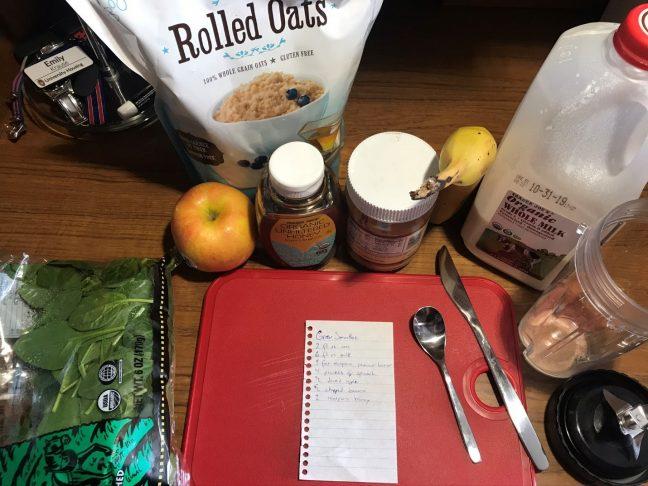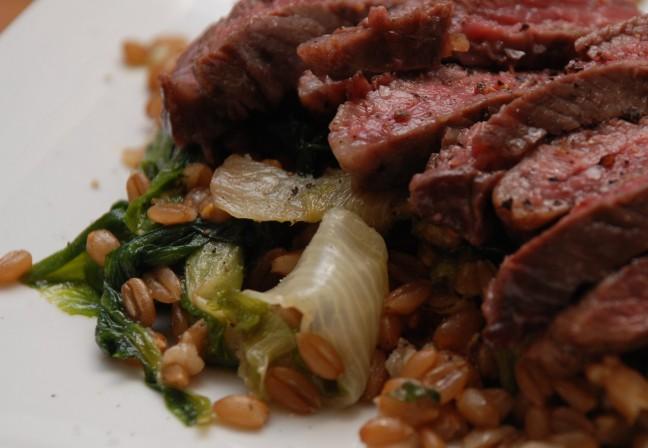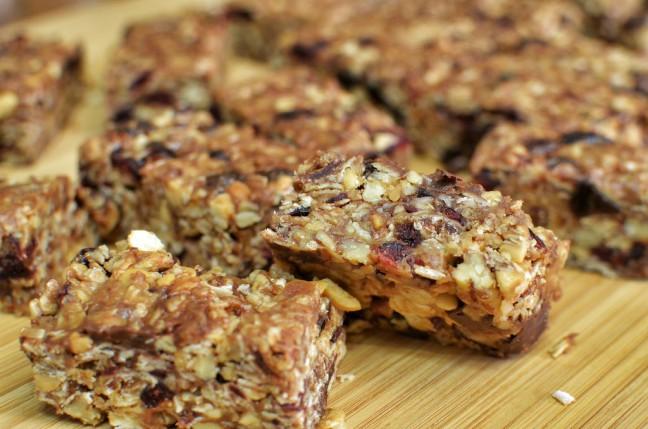Though the weather outside has not turned frightful just yet, germs and viruses are still in the air and looking to wreak havoc on our bodies as the temperature outside continues to drop.
Dorms, apartments and other heavily-trafficked places can be breeding grounds for sickness. The last thing anyone wants is a nasty cold or flu that could make midterms and finals even more miserable than they already are or ruin winter break plans.
Avoiding sickness completely is unfortunately unrealistic for a normal human being, but there are various ways we can boost our immune system to help ward off any unwanted visitors.
One of the most important lines of attack against illness consists of proper nutrition and hydration. Remember that a well-balanced diet is the key to healthy nutrition. A balanced diet should include fruits, especially ones with vitamin C, such as oranges, red sweet peppers, strawberries or guava, plus plenty of vegetables, lean sources of protein and healthy fats. Vitamin supplements should not be replacements for real food, as fruits and veggies are an awesome way to get energy and are very mobile.
Warm drinks such as herbal tea and homemade soups or broths may help alleviate congestion as well as other cold and flu symptoms. Try to skip salty soups as they may increase inflammation in the throat. Sugary or caffeinated drinks also should be forgone, though a nice cup of hot chocolate (nix the whipped cream) or basic coffee can be soothing in moderation. Hydrating the body is also part of proper nutrition, as it is essential to keep our bodies operating like well-oiled machines. Keep a bottle of water with you at all times to ensure you will never go thirsty.
Another vital member in the battle for a disease-free body is getting enough sleep. Rest is crucial for the body to function properly and boosts the immune system by allowing recovery and rebooting – at least 7 to 8 hours a night is recommended. Any less than that could increase the chance of getting sick because the body will not be given enough time to repair itself. Because eight hours a night can present a difficult task due to heavy study loads and the occasional all-nighter, naps are okay lest you start falling asleep during your classes. However, they should be kept to 30 minutes or less because any longer may lead to a deep sleep, resulting in tiredness and grogginess. Try to limit your napping to early in the day because any later than 3 p.m. may make falling asleep at night more difficult.
Moderate exercise can also aid in boosting the immune system. Exercise decreases the stress hormone cortisol by releasing endorphins that help reduce stress. Exercise has also been shown to help fight off illness by increasing disease fighting bacteria called a macrophage. The endorphins released during physical activity can also lower depression and trigger positive feelings in the brain. However, if you are already sick or feel a cold getting worse, it may be best to take a few days off so your body can use its energy to help you recover more quickly.
Another great tip to avoid getting sick: Wash your hands, people! I do not think I can stress this one enough. The most common way germs and viruses spread is through physical contact with people and objects. Wash your hands before preparing food and eating, and scrub-a-dub-dub them after coughing, sneezing, blowing your nose and particularly after using the bathroom. If you do not already cough or sneeze into your hands or the crook of your elbow, please make that a habit. Ever seen the video of a sneeze in slow motion? If not you may want to check it out – you’ll soon realize how unsanitary sneezing can be.
Since we cannot always use a sink to clean our 10 digits everywhere we go, keeping a small bottle of hand sanitizer to use after touching doorknobs, borrowing pens and almost anything else is a great and easily accessible alternative. Constantly washing your hands might seem excessive, annoying or time consuming, but the extra minutes out of your day will always beat feeling like crap.
My last tip for staying cootie-free is to stay away from people who are sick. This is basic common sense, but it is easier said than done, especially when – in the case of all you dorm residents – you have to sleep feet away from your roommate, use the bathroom with dozens and eat with hundreds of others.
The best thing to do in this situation is to wash your hands frequently, avoid sharing items, thoroughly wash any utensils or kitchenware you do have to share and try to maintain a safe distance if possible. If you live in close quarters with someone who has not quite caught the train to Sanitaryland yet, asking them politely to cover their mouth when they cough or sneeze is well worth the possible bacterial infestation.
Avoiding sickness may seem like an impossible task, but heeding these words of advice will lend a hand in boosting that good old immune system that keeps you healthy and happy.
Jenny Slattery is a sophomore majoring in journalism. Want a healthier lifestyle? Send questions and comments to her at [email protected].























